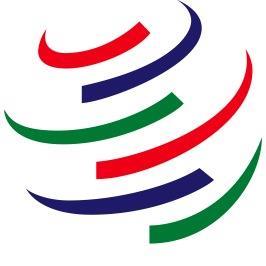
The death of the Doha round of World Trade Organisation talks is something of a phoenix; the rebirth and failure of the Doha discussions has almost become a seasonal event. For the past seven years the talks have cycled through optimism at a breakthrough on the ambitious list of objectives, and anguish when that breakthrough fails to materialise. As the ashes cool on this year’s attempt, many are wondering whether the phoenix is, in fact, just a lame duck.
The Doha round was launched in November 2001, two months after the destruction of the World Trade Centre in New York. The symbolic timing and grand agenda of the round aimed high; Doha was seen as a doorway to prosperity for developing countries by lowering trade tariffs and subsidies in wealthy nations, and allowing them access to cheap medication. The division between developed and developing nations embodied in the original agenda of the talks has eventually proved to be the hurdle Doha cannot vault.
The last few years of the WTO talks have uniformly ended in disagreement between the old Western economic powers and the up-and-coming developing nations. The Doha round was erected on the model of the late 1990s, when food and oil were cheap and the US and EU were unrivalled by China and India. The former’s drive to maintain their fiscal hegemony on the world stage and the latter’s inexorably advancing economies have reached an impasse the talks are unable to work out. EU trade commissioner Peter Mandelson says it’s “heartbreaking” the talks failed this year, “But I’m afraid that on this subject, an irresistible force met an immovable object and the rest is history.”
Toppled along the way have been a number of forestalled trade negotiations. Most recently, the bitter and long-running ‘banana wars’ surrounding the EU’s import tariff regime had almost reached, if not a solution, a compromise that both the Latin American and African, Caribbean and Pacific (ACP) camps could accept. The tentative agreement between the EU and the Latin Americans was reached only days before the Doha talks imploded, and given that the ACP countries – led by Cameroon – were still considering the proposed agreement, the future of that deal is now up in the air.
Some officials, especially WTO head Pascal Lamy, say something can be salvaged from the wreckage of the Doha round. “We will need to let the dust settle a bit, it’s probably difficult to look too far into the future at this point,” he said. “WTO members will need to have a sober look at if and how they bring the pieces back together.”
Despite that cautious optimism, the prognosis doesn’t look good. Even while Doha had a pulse, political timing hamstrung the negotiations; next year will see new leaders in Washington, the European Commission and maybe New Delhi. When three of the major players are on their way out, the personal guarantees that feature so heavily in WTO negotiations mean little.
Many of the analysts watching the latest failure are hearing Doha’s death rattle. The deal originally meant to be sealed by 2006 still hasn’t come to consensus in 2008, and looks less likely to than ever. Any negotiations that do actually find success in the Doha talks are crippled by its continued collapse. Should the plug be pulled on this round to let something more likely to succeed take over?
Doha has shown itself for another year to be a model that cannot work. The foundation of the talks were built on an international environment that no longer exists, and the fundamental loggerheads between the established powers of the West and the economic juggernauts of the developing world is not likely to resolve itself any time soon. Doha has had its day, but the WTO is still clinging to it like a lifejacket even as it turns into an anchor. It’s time for this phoenix to hop off the perch for the last time.






No comments yet